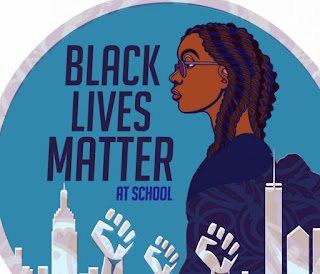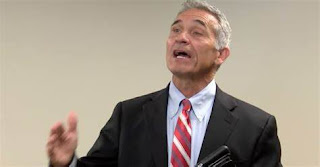Charlie Kirk, Trump activist and leader of Turning Point USA, had a plan. It's hit a big speed bump, but the plan is a warning about what's coming next in the privatization of US education.
Kirk's plan was an academy, marketed directly to families after an "America-first education." To do this, he had hired StrongMind, an Arizona company that specializes in setting up virtual and hybrid learning (and suffers from an unfortunate name choice that always reminds me of StrongBad). (My old school district hired StrongMind to operate their virtual academy.) They were planning for 10K students and a gross revenue of $40 million.
There were several speedbumps, as revealed by investigative reporting at the Washington Post. For one thing, it turns out that StrongMind depends on a lot of labor in the Philippines; that didn't fit the America first brand well and Turning Point asked if the work on their project could be done in the US. The contract also required StrongMind to "adjust" some of its content (can't use a GOP President speech as an example of propaganda). None of that didn't seem to bother StrongMind, which saw this big contract as a chance to become the Amazon of school choice.
However, a StrongMind subcontractor disagreed. Freedom Learning Group was hired to provide the content (StrongMind is more an infrastructure outfit). FLG is run by military spouses and veterans, and its CEO told WaPo, “When advised that the ultimate client was Turning Point USA, we notified the curriculum developer that we are terminating the contract.” At that point, StrongMind had to back out of the contract that they could no longer fulfill.
So Kirk's plan to rescue students from schools “poisoning our youth with anti-American ideas” has hit a bit of a snag.
The plan gives us a glimpse of the coming supply side of the education savings account (neo-vouchers) revolution. Already several states have launched expanded versions of this program that hands parents a loaded debit card and says, "Your child's education is now your responsibility. Be free--and don't bother us any more." Alabama, Oklahoma, Utah-- multiple states have or are planning to pass laws opening up this new world where parents can take their neo-voucher and spend it on whatever education-flavored product they wish.
Just as veteran education benefits gave rise to a world of predatory for profit colleges, we can expect any ESA advances will include predatory for profit K-12 schools, aimed at soaking up those sweet, sweet tax dollars and peddling whatever extreme message they think will bring some market share. The ESA laws we're seeing are very explicit in saying that the government must keep its hands off the private schools collecting neo-voucher money and allow them to do as they please (hence the Florida voucher schools discriminating against LGBTQ students and teaching anti-science).
This is what an ESA world of education would have--ideological (or at least those who can pose) grifters setting up concept schools that market well, but which may or may not have any real goods inside. But as long as the investors are happy, what more will we need.
You can say, "Well, the market worked--people weren't willing to help Kirk set up his crappy jingoist nationalism school," and I will say, just wait. Somebody out there will more than happy to slap together some content for the chance to hoover up some of that taxpayer cash. Kirk may be down, but sadly, I don't believe for a minute that he's out. And if more neo-voucher and voucher laws are enacted, he'll turn out to be just the tip of a scummy iceberg.






